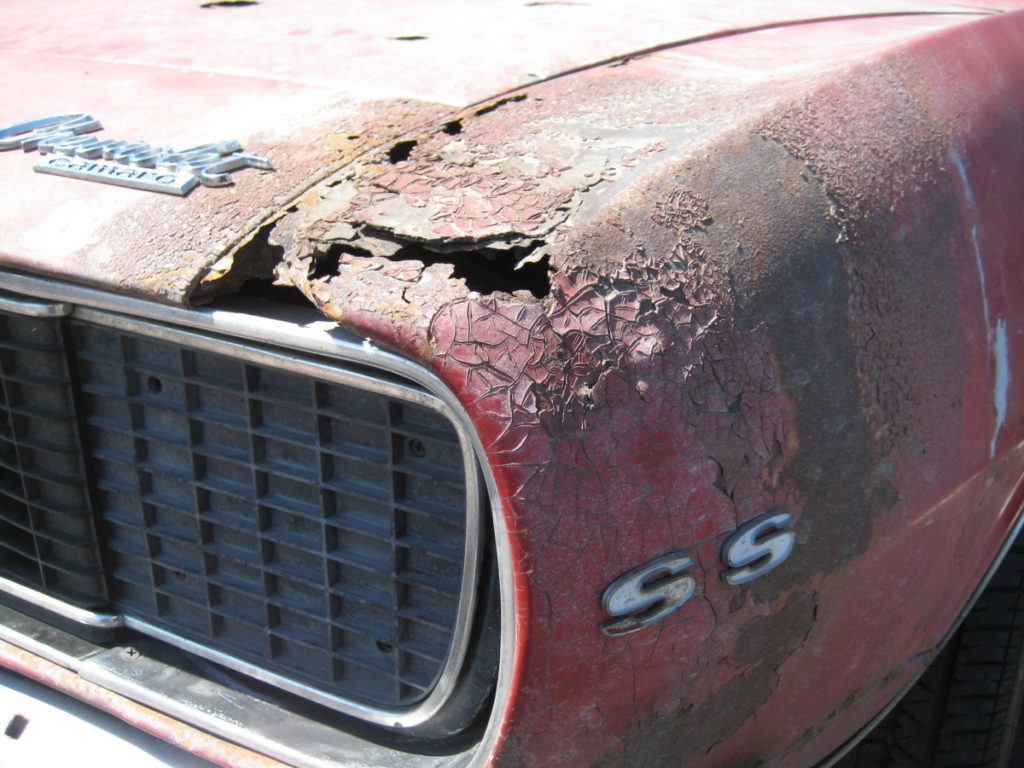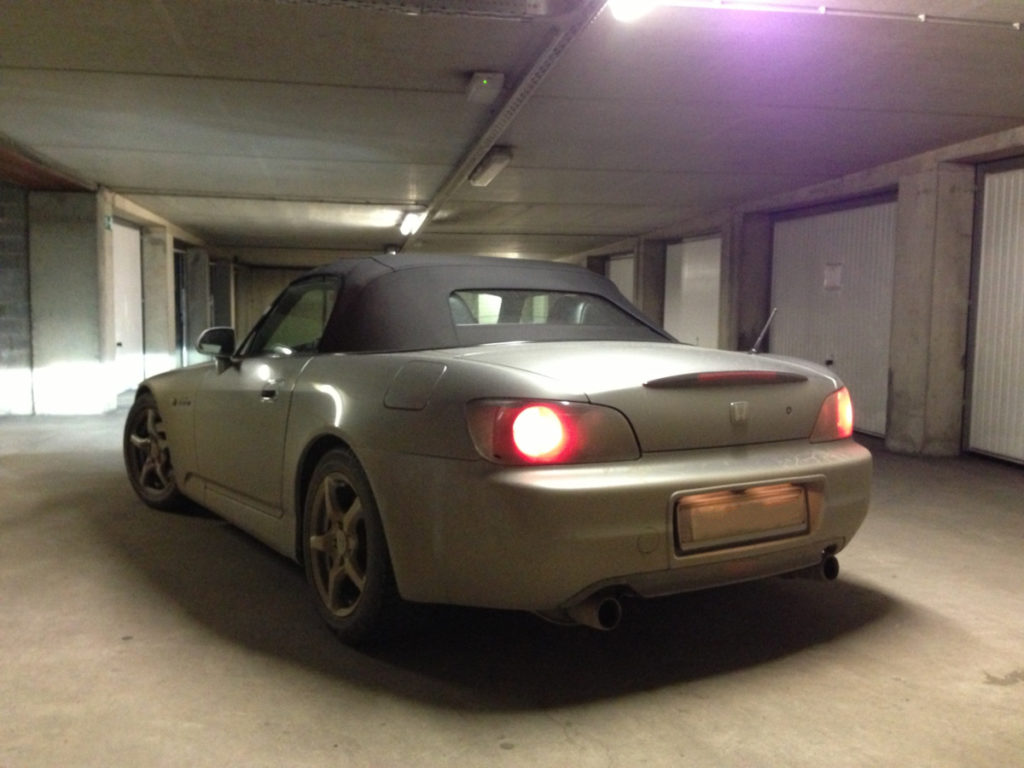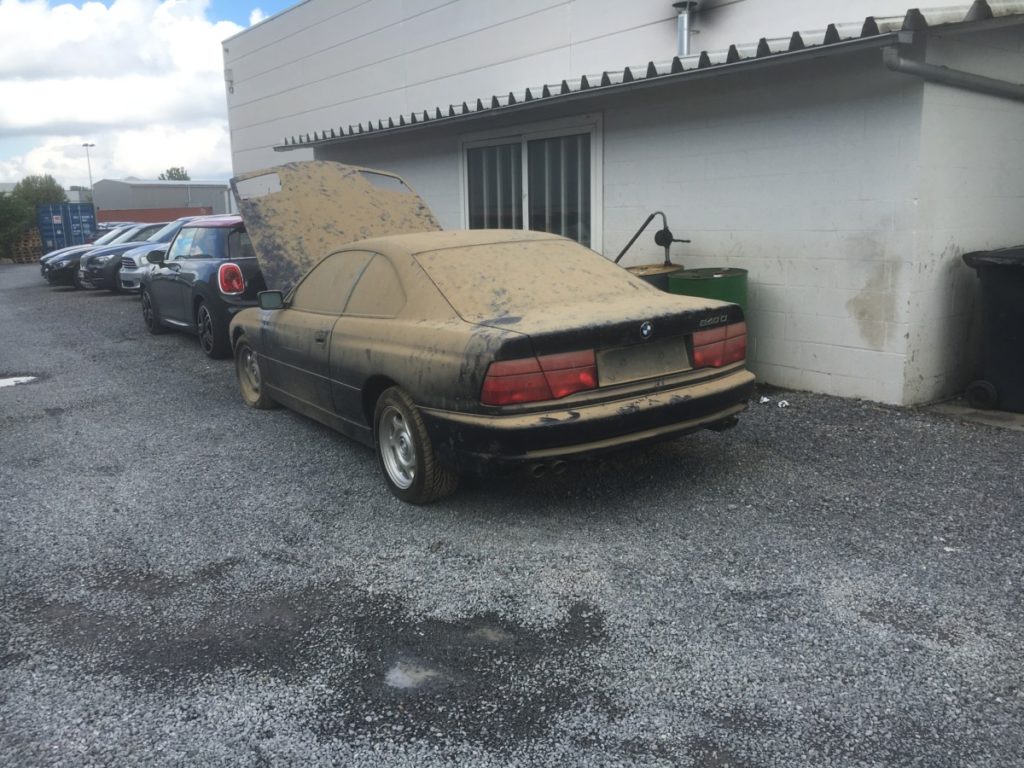You’ve saved up for the vehicle of your dreams, and now you must consider things such as maintaining your new investment, how to care for it, and proper storage. If you are concerned about sunshine diminishing your paint job, and rust entering the engine, you should be. However, there are ways that you can protect your car, and one of them is keeping it in a garage.
Do garaged cars last longer? Yes, a vehicle sheltered by any storage that protects it from snow, paint fade, sunshine, and rain will stay in excellent condition longer than a car that is not protected from external elements. However, it is not always best to store your vehicle in a garage in colder climates as the lack of ventilation can accelerate rust production.
This article will cover the benefits of storing your car in the garage, the conditions when a garage might be a bad idea, as well as alternative methods that can extend the life of your vehicle!
Table of Contents
Do Garaged Cars Last Longer?
Storing your vehicle in a garage will often increase its resale value as well as offering:
- Protection from the sun for the internal mechanics which can overheat your vehicle, add extreme pressure on the engines as well as the coolant and fans
- Protection for the paint job from ultraviolet exposure
- Reducing risks for water or rain to remain in the engine, which leads to internal and external rust
- Overall stability of your vehicle’s performance and safety by maintaining the engine
If you care about your car and want what’s best for it, storing it in a garage is the straightforward answer. However, there are conditions in which a garage can worsen your issues. It may help with one thing, like sun protection, but produce a new problem such as slush melting in your engine.
Will a Car Rust in The Garage?

Garage storage is optimal in warmer climates, but a garage is not always the ideal storage place for your car in cold climates. Environments that are prone to freezing will not be suitable for parking your vehicle, at least not immediately.
The issues that can arise if you enter a garage too quickly after being in a colder environment are:
- If your garage is closed, the dampness will not evaporate, and the lack of ventilation will leave your car wetter than it should be. It ends up being wet more often than it’s dry, which only allows the road salt to continue its dirty work.
- Road salt can be retained in the engine and cling slush to your vehicle.
- Slush will melt from the extreme heat of your vehicle, which turns to liquid and increases your likelihood of premature rust, especially as the road salt magnifies the moisture retention, and the two elements make problems significantly worse.
- Condensation permeates the inside of your vehicle, and the rust-causing properties will contribute to further damage and expensive repairs.
- Throughout the colder seasons, you are repeating this vicious cycle, so your vehicle never catches a break or gets to rest in a preferable state of dryness.
The best course of action to combat difficult winter slush and road salt will be the wipe your car down when you get home and not leave it covered in condensation.
The Solution – Keep a towel in the garage, specifically for this purpose, and remove any moisture or salt buildup that you fear could creep into the inside of your vehicle or compromise its integrity.
Ways to Make Your Car Last Longer – With a Garage

Some of these will apply regardless of whether you have a garage, but tips for vehicle longevity with a garage include:
- Always Utilize a Car Window Shade – This will protect your car from overheating and against UV Rays that can affect your sensitive interior.
- Regularly Wash Your Car – This may sound basic, but a little TLC never hurts. Removing debris, dust, dirt, salt buildup, etc. will ensure the exterior is not harboring a thick foundation of crust.
- Park with Intention – Always look for parking spots in the shade. Search for shade as well as a place where debris and sticks falling on your vehicle can be avoided. This is a small daily habit that add up to an increased life expectancy for your car.
- Avoid Air–Drying – Leaving water residue after washing your car will only increase the harsh effect of ultraviolet sunlight and deposit those droplets into water-spots. Always dry your vehicle after washing it.
- Maintain the Cooling System – The first signs of wear and tear will be in your fans and coolant materials that keep the engine from overheating. If your vehicle is being overworked, you will need to keep an eye on the hoses, belts, and coolants to repair them as soon as necessary, avoiding further damage.
Ways to Make Your Car Last Longer – Without a Garage

If you want to protect your car in more ways than one, this section is for you. It’s also for those who may not have access to a garage system and need innovative ways to protect their prized possession.
If you do not have a garage or you want additional ways to make your car last longer, the following is recommended:
- Purchase a Waterproof Car Cover – This affordable investment will not only protect your vehicle from rain and sunshine, but it also can save you money by decreasing car washes and maintenance. You can use this even if you are storing it in the garage to protect from dust.
- Purchase a Carport – This is a more costly investment, but it will also act as a mock garage. You will need to be aware that many don’t close fully or might be missing the doors and walls. If this is the case, you’ll need to take preventative measures to secure your car from theft. Carports of a higher-quality can increase the value of your home if you do not already have an established garage.
- Regularly Seal and Wax – This is a protective coat that you can put onto your car to protect it from harsh environmental impacts. Keeping this protective sealant fresh can go a long way, whether you have a garage or not.
Final Takeaways for Vehicle Longevity
Proper care for your vehicle will lead to a longer-lasting and better-functioning vehicle that will make you feel safe and secure. Knowing the signs of elemental wear and tear is the best first step you can take to care for your car and make it last.
To summarize:
- Cars will be increasingly protected by a garage and will, in all likelihood, experience extended functionality.
- Garages can be suboptimal for people in freezing climates. Yes, you are protected from the snow, which is better than nothing, but the lack of ventilation will create an environment for condensation, moisture retention, and premature rusting.
- Especially if you live in a colder environment, prevent rust in your garage by drying off your car. Don’t leave it out to be wet from the snow, rain, and road salt all night.
- Regular car washes will impact your car’s longevity, with periodic inspections and maintenance being crucial.
In Conclusion
The more you take time to learn what your car needs, the more savings you will see regarding repairs.
Luckily for you as a consumer, cars are lasting longer than ever before, making your investment even more worth it, which has little to do with garages. Cars are being built to last for a quarter of a million miles presently, and they are setting an industry-wide standard.
Your garage may assist with the longevity of your car, but only if you maintain it, do regular inspections, and take measures to keep your car dry (which should be prioritized whether you have a garage or not).



0 Comments